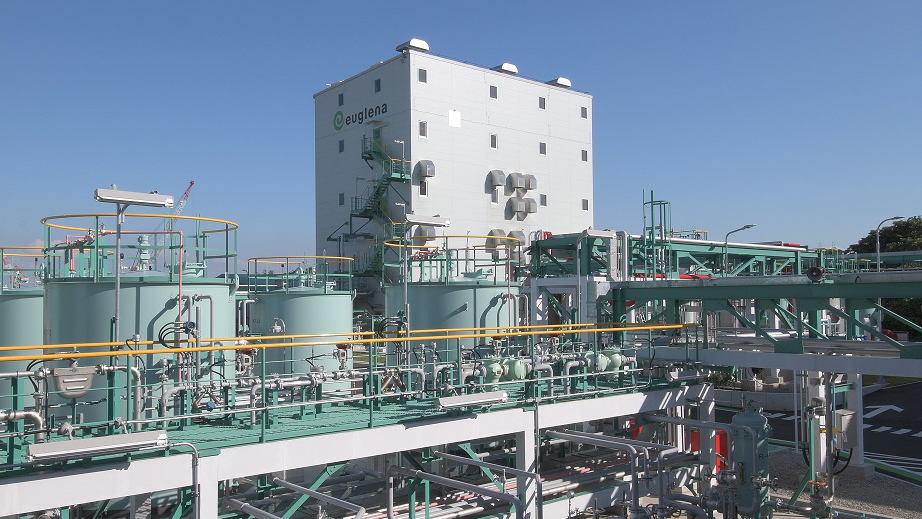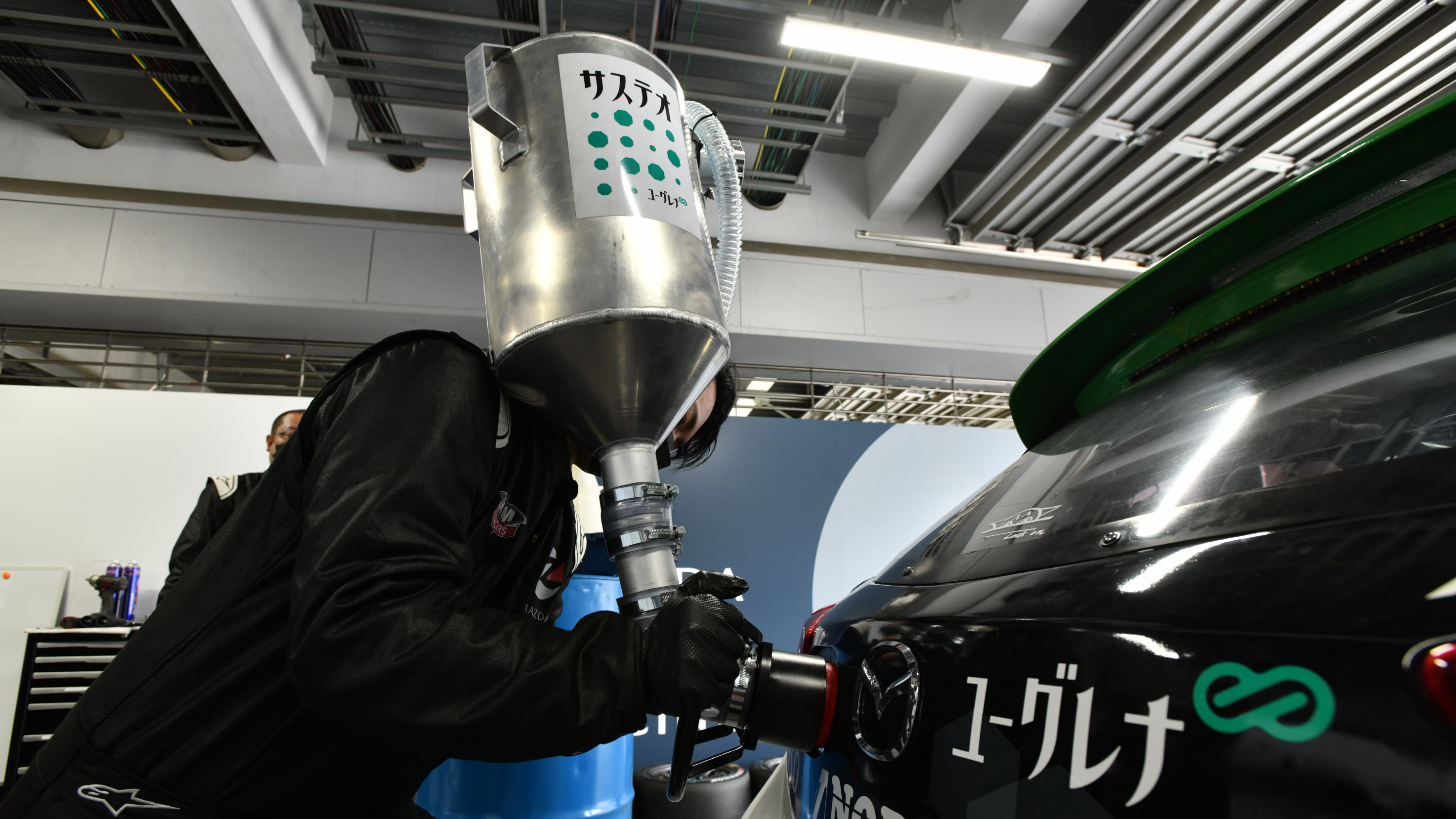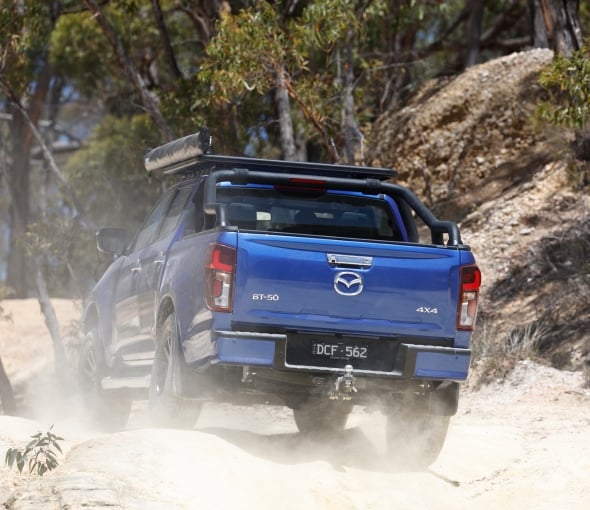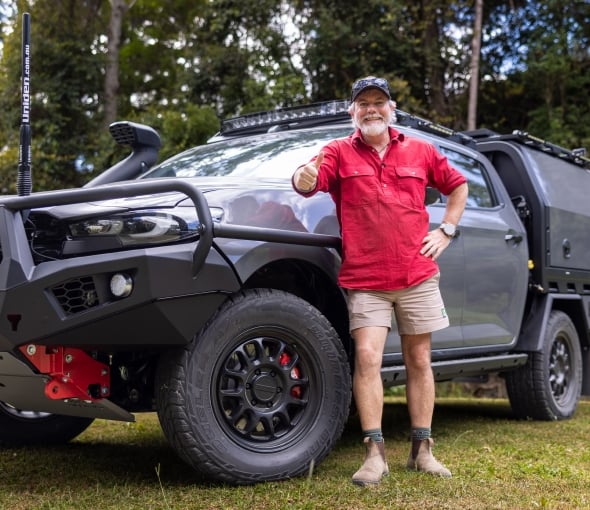
INNOVATE
THE RACE FOR WORLD-CHANGING TECHNOLOGY

INNOVATE
THE RACE FOR WORLD-CHANGING TECHNOLOGY
Powered by biodiesel fuel, the Mazda2 Bio concept car is a “laboratory on wheels”, exploring alternative sustainable energy sources to fossil fuels as Mazda looks to achieve carbon neutrality by 2050. In this innovative project by Mazda for a sustainable future, we can see the beloved Mazda2 converted into a race car, fuelled by biodiesel proving Mazda’s ingenuity and determination in reaching the company’s goals.
Article by Kenji Momota
A Surprising Component of Biodiesel Fuel
6 June 2022, 4.29am. Dawn breaks over Fuji International Speedway where the Super Taikyu Series Fuji 24-hour endurance race is more than halfway through. The smell of cooking oil lingers in the air as people begin to prepare breakfast, unaware that in pit 27, the Mazda Spirit Racing team’s mechanics are using the same cooking oil to power the experimental Mazda2 Bio concept race car they’ve got on the track.
Today’s race is not just a test of the car, drivers’ and team’s skill, it’s a test that could change the course of Mazda’s future and give tangible proof that biodiesel can be a sustainable energy source, potentially more eco-friendly than the current battery electric vehicles (BEVs).

A Race for Experimental Concept Cars
The Mazda is competing in the ST-Q class, which is exclusively for special, non-homologation vehicles. In other words, it’s a place for manufacturers to try out experimental cars. In the case of Mazda, its Zekken 55 Mazda2 Bio concept is fuelled by 100 per cent biodiesel, made from used cooking oil and microalgae fats. This Mazda2 experimental variation boldly demonstrated Mazda’s multi-solution strategy to achieve carbon neutrality by 2050.
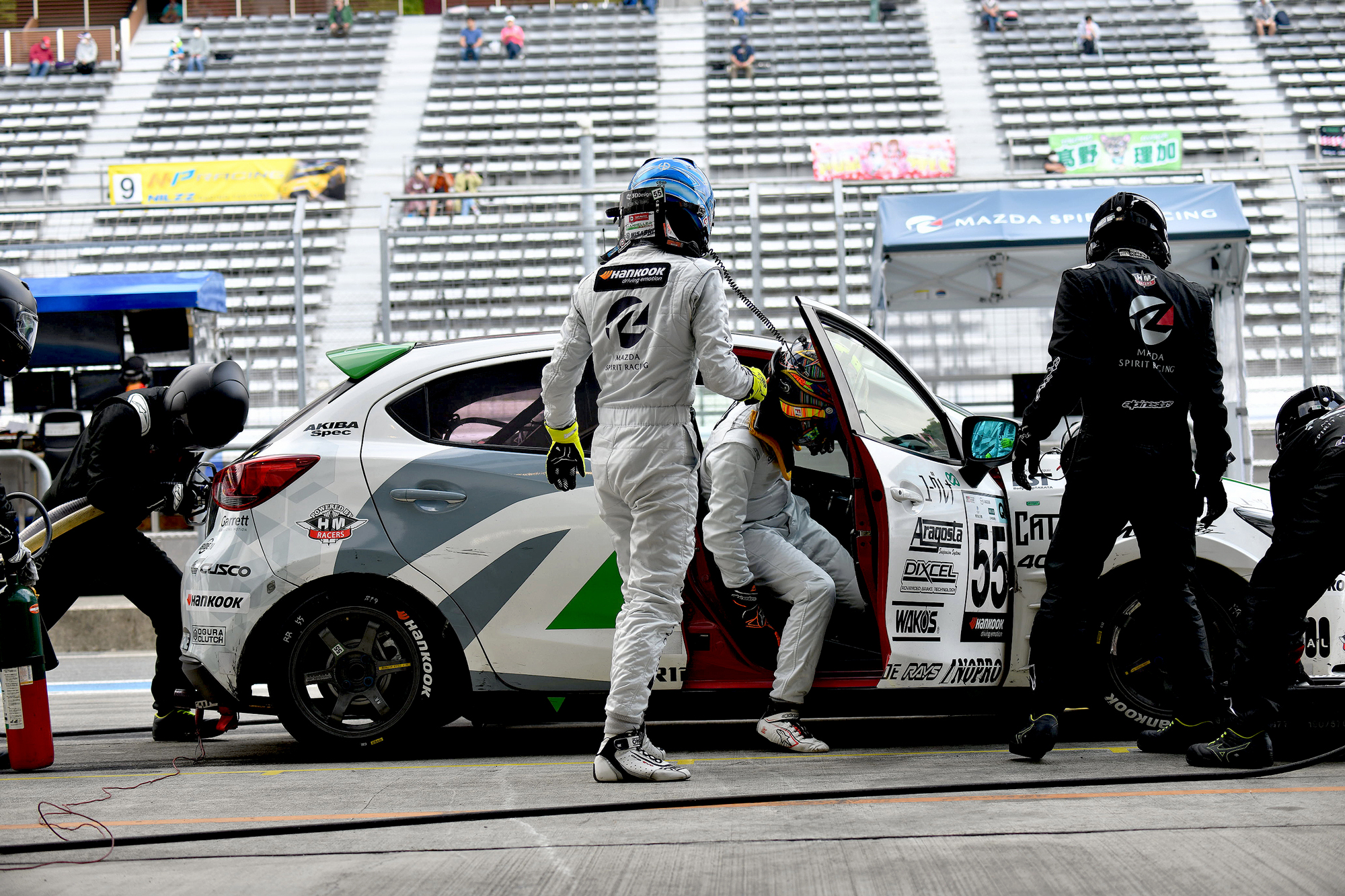
A quick driver change for the Zekken 55 Mazda2 Bio concept.
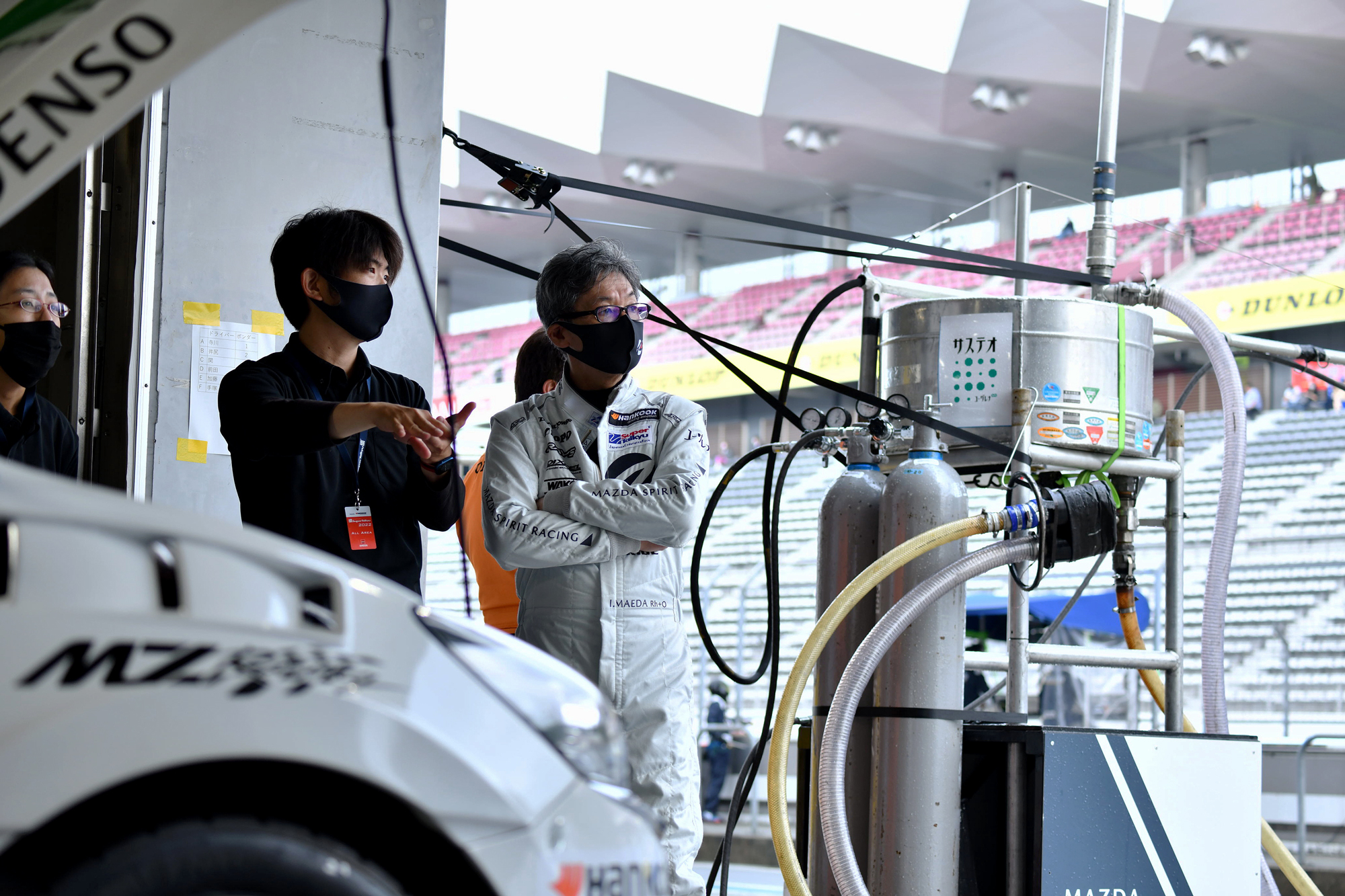
The fuel is a mixture of microalgae fats and cooking oil.
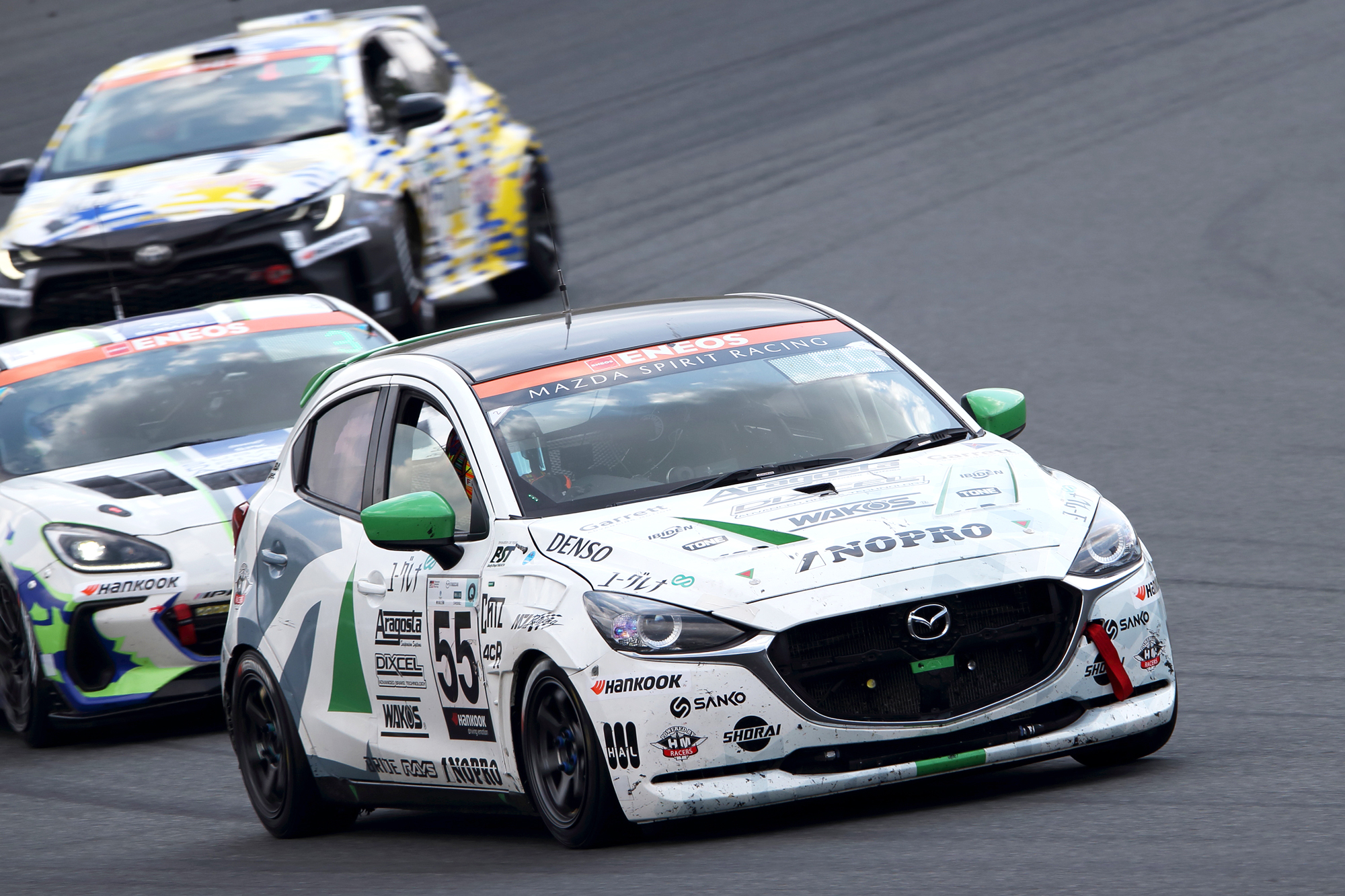
The ST-Q class is where manufacturers race experimental cars.
Eco-Friendly Biodiesel Sustainable Energy Source Rivalling
BEV Technology
Although the world is shifting fast to BEVs, driven largely by the European Green Deal, which has set an objective for EU nations to become carbon neutral by 2050, there are many questions that arise from pursuing a pure-electric automotive strategy. Is the source of the electricity eco-friendly? Are the source materials used in the manufacture of the batteries and the vehicles themselves sustainable and environmentally friendly? And what about those nations where electricity is still not readily available to everyone?
All of these questions and more are being tackled head-on by Mazda, and Mazda President Akira Marumoto stresses, “We are delivering a multi-solution approach that offers various powertrains depending on each country or region’s policies.” So, while Mazda has the MX-30 BEV in its lineup and is constantly developing and improving its powertrains and technologies to be compatible within existing infrastructures worldwide, it’s also looking to alternative energy sources to fossil fuels.

“The engine developers who are part of Mazda’s racing team praise the high quality of the next-generation biodiesel fuel.”
Mazda’s Multi-Solution Approach for Sustainable Energy Sources
The Mazda2 Bio concept trial is one strand of the company’s multi-solution approach. In 2018, Mazda launched Your Green Fuel, a project that saw it partner with Euglena, a Japanese company that’s set to mass produce next-generation biodiesel at a commercial plant from 2025.
Euglena’s Susteo biodiesel is made entirely from Japanese products and it is officially recognised as diesel fuel by Japanese Industrial Standards (JIS). Susteo consists of a combination of microalgae that contain a lot of fats, cultured in an Okinawan factory, and waste oil such as cooking oil. So, compared to biofuels made from corn or other raw materials, it does not cause problems such as food competition or deforestation.
At the moment, the Mazda2 Bio concept car is a “laboratory on wheels”. The company chose to trial the new fuel in the small car after it had notched up successes in the 2021 racing season with a standard Skyactiv diesel engine driven by a private team. For the 2023 season, however, Mazda is developing a new racing machine based on the Mazda3 that has a more powerful engine to further test the experimental biodiesel technology.
“It’s a bold venture, but one that is perfectly suited to the company that has always had a challenger spirit.”
Impressive Results from the Biodiesel-Fuelled Mazda2 Bio Concept Race Car
The engine developers who are part of Mazda’s racing team praise the high quality of the next-generation biodiesel fuel, saying “It matches well with the existing Skyactiv-D when it comes to things like adapting the fuel injection system.”
In fact, it might not be long before we see biodiesel Skyactiv-D cars on the roads. It’s a bold venture, but one that is perfectly suited to the company that has always had a challenger spirit.
Discover More of Mazda’s Sustainable Innovative Technologies
Learn what options are available to you
